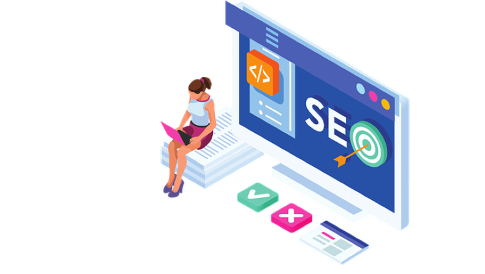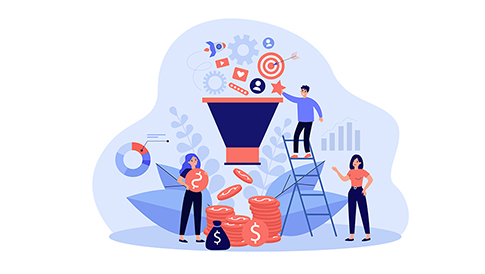Exploring the Best Internet Marketing Strategies to Grow Your Business

Source: https://www.pexels.com/photo/gray-and-black-laptop-computer-265087/
In the ever-evolving business growth landscape, navigating digital and internet marketing has become imperative. The distinction between digital and internet marketing sets the stage for exploring effective strategies.
Crafting an engaging online presence, leveraging search engine visibility, harnessing social media power, and optimizing conversion rates are essential for sustainable business expansion. Let’s explore.
Digital Marketing vs. Internet Marketing
Digital marketing is a broad term that encompasses any digital channels or technologies you use to promote your services or products, both online and offline. It can include SMS promotions, radio advertising, television advertising, and digital billboards. On the other hand, online marketing or internet marketing is a subset of digital marketing that uses online media and the internet to reach your audience.
The Benefits of Internet Marketing
Internet marketing is an affordable and cost-effective way to attract new leads, especially if you have a limited budget. As the targeting is often focused on individuals who are likely to display interest in your products and services, your budget is spent in an optimized manner, and you capture more qualified leads.
Internet marketing also helps increase brand awareness because people recognize, learn about, and choose your business and are more likely to refer it to their friends and families. Search engine optimization strategies enable your business to rank higher in search results. You receive more clicks and visits, and you can position yourself as an authority in the field by pushing valuable content.
Internet marketing has more reach as you can attract potential customers worldwide in less time, unlike traditional marketing, where you are limited. For example, if you put ads on billboards, only those driving by will see them. In contrast, social media ads have no such limitation. They ultimately generate more revenue, and you can easily monitor, evaluate, and test your campaign to optimize your spending and strategy and earn the highest possible ROI (return on investment).
Strategies to Grow Your Business
Let’s explore different Internet marketing strategies to grow your business.
1. Web Design
Your website is the first point of interaction between your potential customers and you, so you must make an excellent first impression so they become your customers. Website errors can prevent conversion rates, so ensure:
- Your site’s design uses quality visuals, is attractive, and matches your brand.
- It is responsive and functions smoothly on all devices
- Website is easy to use and navigate, whether it’s to buy products or find contact information
- It has good UX (user experience), meaning no broken pages or links
You can tailor a marketing plan for your business by clearly defining your objectives and making them SMART: specific, measurable, actionable, relevant, and time-bound. You must clearly identify your target audience to market your website to the right people, Focusing your research on the following demographic areas:
- Gender
- Income
- Age
- Location
- Occupation
- Lifestyle
- Interests
Outline the strategies and tactics you will use, such as creating relevant content for your website, like case studies or blog posts, to drive traffic to your site. You can also use social media marketing by posting Instagram reels promoting your website. Consider working with companies like Bizango to make sure your website caters to your audience and stands out.
2. Search Engine Optimization
Search engine optimization (SEO) increases your company’s visibility in organic search results by earning inbound links, conducting keyword research, optimizing website content, and more. 67% of B2B buyers start their buying process with a quick and broad web search, And the statistics are Similarly high for other business sectors. In fact, great SEO can deliver an ROI of 700% or more. Search engines analyze these factors to rank your page:
- Relevancy between content and search query
- Context, including user location and past behavior
- Quality of content based on signals like trustworthiness, expertise, and authority.
Some tactics you can incorporate include:
- Simple URL structures
- Page speed, as load time, is an indicator of quality
- Avoid dead links (non-existent pages) and broken redirects (resources that are no longer there), as they prevent search engines from indexing your content
- Avoid duplicate content because it is often considered a negative factor and confuses search engines.
3. Social Media
Social media marketing or e-marketing uses different social media platforms to increase sales, build a company’s brand, and drive website traffic. They have purpose-built data analytics that allows you to monitor engagement and success. The power of social media marketing comes from:
- Connection: You can connect with your audience through a range of avenues, such as microblogging services (Twitter/X platform), social sites (Instagram or Facebook), and content platforms (YouTube).
- Interaction: Customers can interact through passive liking or direct communication. These interactions are measurable; you can easily measure your social equity (a term for ROI) from your social media campaigns.
- Customer data: You no longer have to be overwhelmed by the 3Vs (variety, volume, and velocity) of big data because social media marketing tools can easily extract data and turn it into actionable market analysis.
Build a robust action plan composed of the following:
- Aligning social media goals with business objectives
- Understanding target audience
- Understanding your competitors
- Auditing your social media marketing plan
- Create quality content, such as shareable content or viral marketing (rapid spread of word-of-mouth product information).
- Tracking performance and adjusting when needed
4. CRO (Conversion Rate Optimization)
In Internet marketing, CRO aims to increase the percentage of website visitors who follow a desired CTA or call to action, whether sharing information, filling out an online form, or purchasing a product. You can boost your CRO by increasing the site’s efficiency or overall site traffic. To optimize CRO, consider:
- Replacing CTA that users ignore
- Make the CTA buttons stand out
- Minimize page load times and decrease bounce rates
- Use re-engagement strategies for users who visited the site but didn’t complete a desired CTA
Words like “limited-time offer”, ” free”, and “sale” can increase your conversion rates.
5. Influencer Marketing
You connect with high-profile online people and ask them to share information about your products or services with their large follower base. You don’t need to pair up with individuals with millions of followers; working with accounts with tens of thousands can be just as effective and more affordable. It helps create brand awareness, establish credibility and trust, and attracts quality leads. Tips to consider include:
- Create an agreement to ensure each party knows their responsibilities
- Partner with influencers who reflect your brand’s message
- Research influencers, such as their past partnerships and the content they post, to ensure they’re a good fit
- Provide value on top of payment, such as can you help boost their exposure?
Endnote
Exploring internet marketing strategies emphasizes the importance of a nuanced approach in today’s competitive business environment. From designing user-friendly websites to leveraging the vast potential of social media, businesses can strategically propel themselves toward growth and success.




Leave a Reply